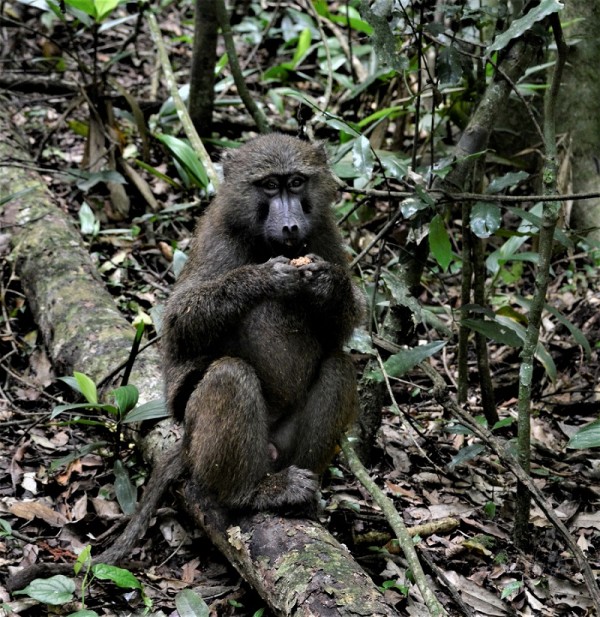By Ana Verayo, | March 29, 2017

Baboon (Papio) eating fruit. (Santiago Cassalett/NYU)
Primates have bigger brains than most mammals, especially humans. Scientists suggest that this brain size growth is due to complex social interactions with other primates. Now, researchers claim that the reason why primates have bigger brains is because to their favorite food, fruits.
Humans regularly need to maintain and engage in large and complex relationships and groups, and this led us to evolve a larger brain. In a new study, researchers from New York University examined this theory closely, challenging this with a new one.
Like Us on Facebook
"The theory that humans and other primates possess big brains due to existing social pressures based on social relationships is being challenged by our new research, mainly pointing to diet," NYU professor of anthropology James Higham.
During the study, researchers were able to examine more than 140 primate species which is far more than past studies with updated family trees as well as factors such as the size of social groups and primate social systems, including mating habits. Apart from these, scientists were also able to classify primates based on their diets such as, folivores eat leaves, frugivores eat fruits, those who eat both fruits and leaves and those who eat meat, omnivores.
When the team analyzed their body sizes and other factors, the results revealed that fruit-eating primate species have significantly larger brains that those who ate leaves. More specifically, fruit-loving primates have 25 percent more brain tissue despite having the same body weight.
Researchers noted that this does not mean that larger brain size is solely attributed to eating fruits, but obtaining fruits requires more cognitive effort or brain power. According to the lead author of the study, Alex DeCasien of New York University, consuming more fruits involves extraction from hard to reach places and protective fruit skins. All of these factors also lead to relatively greater cognitive complexity and flexibility among primate frugivore species.
This new study was published in the journal Nature Ecology and Evolution.
-
Use of Coronavirus Pandemic Drones Raises Privacy Concerns: Drones Spread Fear, Local Officials Say

-
Coronavirus Hampers The Delivery Of Lockheed Martin F-35 Stealth Fighters For 2020

-
Instagram Speeds Up Plans to Add Account Memorialization Feature Due to COVID-19 Deaths

-
NASA: Perseverance Plans to Bring 'Mars Rock' to Earth in 2031

-
600 Dead And 3,000 In The Hospital as Iranians Believed Drinking High-Concentrations of Alcohol Can Cure The Coronavirus

-
600 Dead And 3,000 In The Hospital as Iranians Believed Drinking High-Concentrations of Alcohol Can Cure The Coronavirus

-
COVID-19: Doctors, Nurses Use Virtual Reality to Learn New Skills in Treating Coronavirus Patients







